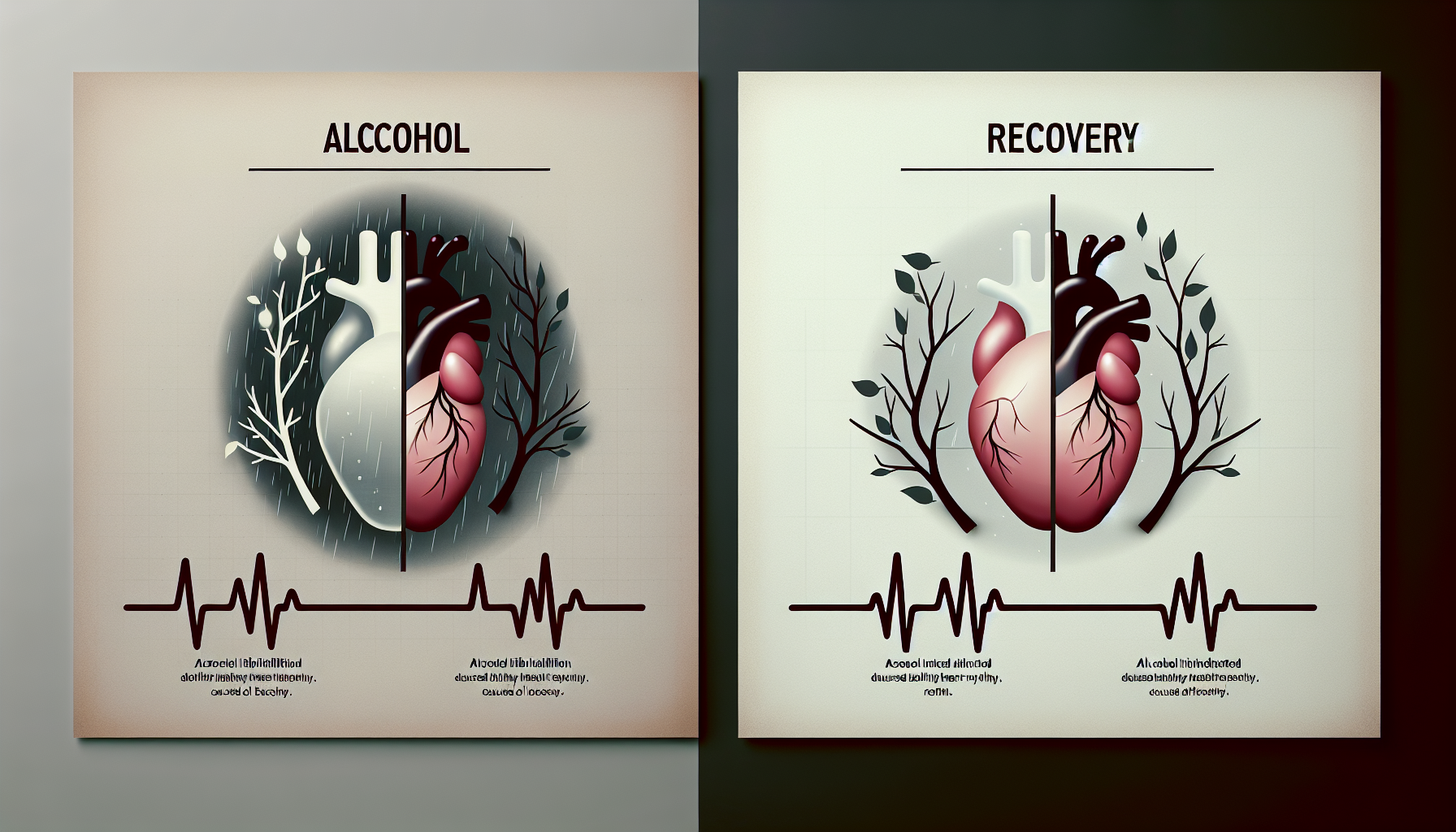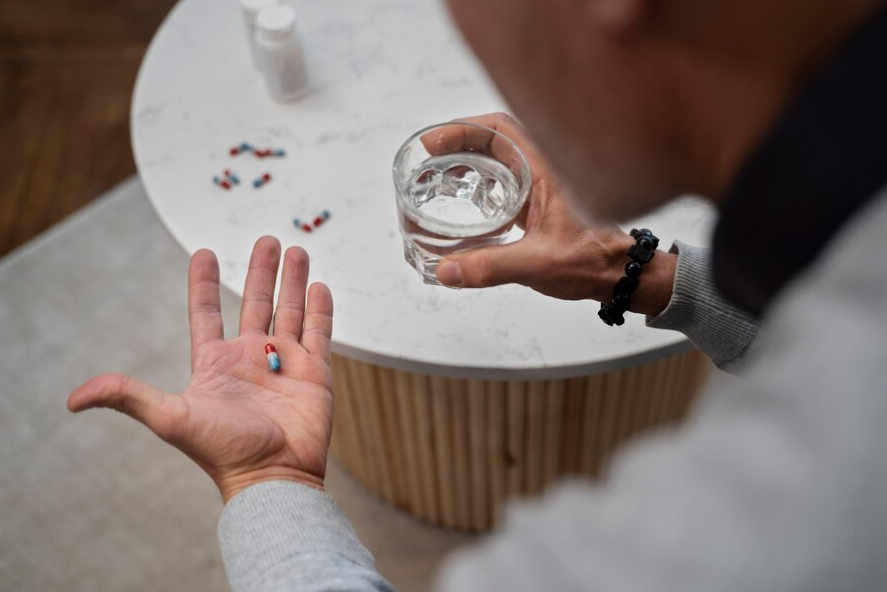Latuda and Alcohol Addiction Exposed
Discover the risks of mixing Latuda and alcohol addiction, and learn how to seek professional help.

Understanding Latuda
Before delving into the risks associated with combining Latuda and alcohol, it's crucial to understand what Latuda is and the common side effects it may cause.
What is Latuda?
Latuda, medically known as lurasidone, is a prescription medication used to treat certain mental/mood disorders, including schizophrenia and depression associated with bipolar disorder. It falls under a class of drugs known as atypical antipsychotics. The primary function of this medication is to help restore the balance of certain natural substances in the brain, thereby improving mood, sleep, appetite, and energy levels, while reducing mental/mood disorders associated with schizophrenia and bipolar disorder [1].
Common Side Effects of Latuda
Like any medication, Latuda may cause side effects. Common side effects include but are not limited to drowsiness, dizziness, lightheadedness, nausea, shaking, weight gain, mask-like facial expression, inability to keep still, and agitation. If any of these effects last or get worse, it is important to notify a healthcare professional promptly.
In some cases, Latuda may cause a serious drop in blood pressure, especially when starting the medication. This can lead to increased dizziness and lightheadedness, raising the risk of falling. Therefore, it is advised to rise slowly when getting up from a sitting or lying position.
Rarely, Latuda may cause face/muscle twitching and uncontrollable movements (tardive dyskinesia). These movements can become permanent if not addressed promptly. If any uncontrollable movements develop, it is imperative to inform the doctor right away.
Another rare but serious side effect of Latuda involves a rise in blood sugar levels, which can cause or worsen diabetes. Weight gain from the drug may increase the risk of this side effect. If symptoms of high blood sugar such as increased thirst/urination are noticed, it is advised to tell the doctor right away. For patients already diagnosed with diabetes, regular monitoring of blood sugar and sharing the results with the doctor is necessary, as adjustments to diabetes medication, exercise program, or diet may be needed.
It's important to note that these are not all the side effects associated with Latuda. If other symptoms are noticed, it's important to consult with a healthcare professional.
Risks of Mixing Latuda and Alcohol
Combining alcohol and Latuda poses significant health risks. These include, but are not limited to, sedation and drowsiness, impaired cognitive functioning and motor skills, and an increased risk of side effects.
Sedation and Drowsiness
One of the primary concerns of mixing alcohol and Latuda is the potential for increased sedation and drowsiness. Both alcohol and Latuda have sedative effects, and when combined, these effects can be intensified, leading to increased sedation and drowsiness. This can impair one's ability to stay awake and alert, making it dangerous to engage in activities that require mental alertness, such as driving or operating heavy machinery. Excessive alcohol consumption while taking Latuda can result in exaggerated drowsiness, further compromising cognitive function and alertness.
Impaired Cognitive Functioning and Motor Skills
Alcohol can impair judgment and coordination, and when combined with Latuda, these impairments can be exacerbated. This can lead to poor decision-making, decreased inhibitions, and difficulty with motor skills, increasing the risk of accidents, falls, and other harmful incidents. This combination may also worsen existing mental health symptoms, such as depression or anxiety.
Increased Risk of Side Effects
Mixing alcohol and Latuda can increase the risk of experiencing side effects associated with both substances. Alcohol can interfere with the metabolism of Latuda, potentially leading to elevated levels of the medication in the body. This can result in an increased risk of side effects such as dizziness, nausea, and changes in heart rhythm. Additionally, alcohol can worsen the side effects of Latuda, making them more pronounced and uncomfortable. Moreover, the risk of overdose may increase when alcohol is involved, which can have severe and potentially life-threatening consequences [2].
In conclusion, the combination of Latuda and alcohol can have detrimental consequences and should be avoided. Always consult with a healthcare provider for personalized advice and guidance regarding the safe use of Latuda, particularly in relation to alcohol consumption.
Alcohol and Mental Health Conditions
Understanding the relationship between alcohol and mental health conditions can provide crucial insights into the risks associated with combining alcohol and Latuda. Latuda, an antipsychotic medication, is commonly used in the treatment of schizophrenia and bipolar disorder. However, when mixed with alcohol, it can complicate the management of these mental health conditions and lead to dangerous consequences.
Alcohol and Schizophrenia
Schizophrenia is a chronic mental health condition that affects a person's thoughts, feelings, and behavior. Some people with schizophrenia may self-medicate their symptoms with alcohol, making the disorder much harder to treat.
The combination of Latuda and alcohol can be particularly dangerous for individuals with schizophrenia. Both substances act as central nervous system depressants, leading to shared side effects such as compromised control over body movements. Studies suggest that alcohol use or withdrawal may exacerbate drug-induced movement issues associated with drugs like Latuda, posing a risk when combined, especially when operating a vehicle.
Alcohol and Bipolar Disorder
Bipolar disorder, another mental health condition treated with Latuda, is characterized by periods of depression and mania. Similar to individuals with schizophrenia, those with bipolar disorder may also turn to alcohol to self-medicate their symptoms. However, the mixture of Latuda and alcohol can worsen the treatment of bipolar disorder.
Furthermore, alcohol can trigger episodes of both depression and mania in people with bipolar disorder. The depressant effects of alcohol can lead to feelings of sadness and hopelessness, while the initial stimulant effects can trigger mania.
Medical professionals emphasize the importance of being cautious when using alcohol for individuals with schizophrenia, bipolar disorder, or another mental health condition because there is a significant link between these conditions and alcohol use.
To ensure effective treatment and management of schizophrenia and bipolar disorder, it's crucial to avoid the consumption of alcohol while taking Latuda. It's always best to consult with a healthcare provider for personalized advice regarding medication and alcohol use.
The Dangers of Overdose
Overdosing on a mix of Latuda and alcohol can have dangerous and potentially life-threatening implications. Recognizing the symptoms of an overdose and knowing the immediate steps to take can be crucial in such situations.
Recognizing Overdose Symptoms
An overdose on Latuda and alcohol can cause severe health issues, and even be life-threatening. It's crucial to recognize the symptoms of an overdose to seek immediate medical attention. Symptoms may include confusion, extreme drowsiness, difficulty breathing, irregular heartbeat, seizures, and loss of consciousness.
Immediate Steps to Take in Case of Overdose
In case of an overdose, the situation is dire and immediate medical attention is required. It's advised to contact a healthcare professional, call 911, or reach out to the poison control center at 1-800-222-1222 (NAMI).
While waiting for help, try to keep the person calm and reassured. Do not attempt to induce vomiting or give them anything to eat or drink unless instructed by a medical professional. Remember, every second counts when dealing with a case of Latuda and alcohol addiction overdose.
Professional Help and Treatment Options
Navigating the complex issue of Latuda and alcohol addiction requires professional advice and guidance. This section looks at the importance of seeking medical advice and explores various addiction treatment options.
Seeking Medical Advice
When dealing with the combination of Latuda and alcohol, it's crucial to consult with healthcare providers. These professionals can evaluate the potential risks and benefits based on individual circumstances, providing personalized advice and guidance. This is particularly important for individuals with schizophrenia, bipolar disorder, or other mental health conditions, as there is a significant link between these conditions and alcohol use.
Healthcare providers can help individuals understand the potential interactions between Latuda and alcohol, and provide recommendations for safe use. The advice provided will be tailored to the individual's unique health situation, taking into account factors such as their medical history, the severity of their condition, and their current treatment plan [3].
Addiction Treatment Options
If someone is struggling with alcohol addiction or alcoholism, particularly in combination with a co-occurring mental health condition, it's important to seek help. The Recovery Village offers various addiction treatment options for those in need. These may include inpatient treatment, outpatient treatment, counseling, and support groups.
These comprehensive treatment programs are designed to address both the physical aspects of addiction, such as withdrawal symptoms and cravings, and the psychological aspects, such as underlying mental health conditions. By addressing these issues concurrently, individuals can work towards a healthier, alcohol-free life [4].
In conclusion, taking steps towards professional help is a critical part of managing the risks associated with Latuda and alcohol addiction. By seeking medical advice and exploring treatment options, individuals can better navigate their journey to recovery and lead healthier lives.
Recommendations for Safe Use
For those taking Latuda, a medication used for the treatment of schizophrenia and bipolar disorder, it is crucial to understand the precautions to take to ensure safe use, especially in relation to alcohol consumption.
Important Precautions While Taking Latuda
While the interactions between Latuda and alcohol are not well-studied, it is known that they both depress the central nervous system, leading to shared side effects such as compromised control over body movements. This can pose a significant risk, especially when operating a vehicle or performing tasks that require precise motor control.
In addition, consuming alcohol while taking Latuda can worsen the treatment of schizophrenia and bipolar disorder. Some individuals use alcohol to self-medicate their symptoms, and alcohol use can complicate the management of these mental health conditions [4].
Therefore, the most prudent course of action is to avoid alcohol consumption entirely while taking Latuda. This precaution is particularly important for individuals with schizophrenia, bipolar disorder, or other mental health conditions, due to the potential for the interaction of side effects to impair reaction time and further depress the central nervous system.
Monitoring Health Parameters
Due to the risks associated with combining alcohol and Latuda, it is critical to monitor health parameters closely while taking this medication. Regular check-ins with a healthcare provider are recommended to ensure the safe use of Latuda.
These appointments can provide an opportunity to discuss any side effects experienced, changes in mental health symptoms or concerns about alcohol use. The healthcare provider can also monitor vital signs and conduct any necessary tests to ensure that the medication is working effectively and not causing any adverse effects.
Furthermore, individuals taking Latuda should be aware of the signs of potential health issues related to their medication and alcohol use, such as increased drowsiness, impaired motor skills, or worsening mental health symptoms. If any of these signs occur, it is advised to seek immediate medical attention.
Medical professionals emphasize the importance of being cautious when using alcohol for individuals with schizophrenia, bipolar disorder, or another mental health condition because there is a significant link between these conditions and alcohol use. Therefore, maintaining open communication with healthcare providers, staying mindful of one's behaviors and feelings, and avoiding alcohol are all instrumental steps in safely managing one's health while taking Latuda.
References
[1]: https://www.webmd.com/drugs/2/drug-155134/latuda-oral/details
[2]: https://www.urbanrecovery.com/blog/dangers-of-mixing-alcohol-and-latuda
[3]: https://www.townsendla.com/blog/alcohol-on-latuda
[4]: https://www.therecoveryvillage.com/alcohol-abuse/alcohol-and-latuda/
Don't Wait. Healing is a Phone Call Away.
Arista Recovery is here to help. We are committed to healing everyone who enters our doors from the inside out. No matter what stage our guests enter treatment, we strive to meet them right where they are.
Get Help Now



































































































